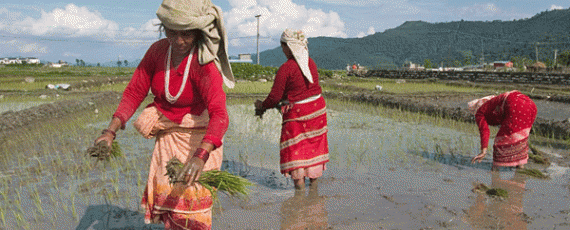LANSA, working to improve nutrition through agriculture in South Asia

Stuart Gillespie talks about a new research initiative that aims to make agriculture work for nutrition
Despite rapid economic growth, undernutrition rates in South Asia remain among the highest in the world. Ensuring nutrition security in the region can only occur through a combination of nutrition-specific interventions and more distal ‘nutrition-sensitive” interventions and approaches, such as broad based agricultural growth. The key conceptual linkages and pathways between agriculture and nutrition are well known. Given that agriculture remains the primary source of livelihood of half of the region’s population, it has the potential to be a strong driver of nutrition in South Asia.
LANSA is a partnership of six organizations working in four focal countries (India, Bangladesh, Pakistan, Afghanistan) on three streams of research, capacity strengthening and policy influence. The programme has been funded by the UK Government for six years. Led by the MS Swaminathan Research Foundation in India, partners include: BRAC (Bangladesh), Collective for Social Science Research (Pakistan), Institute of Development Studies (UK), International Food Policy Research Institute (USA) and the Leverhulme Centre for Integrative Research on Agriculture and Health (UK).







